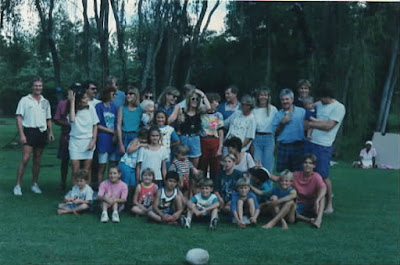The Place.
According to family tradition, Rudolf and Annie Ziehl had a few options as to where they could settle in Rhodesia. It was either on Avondale Farm near Salisbury, the capital city (now a suburb of Harare), or 110 miles (170 km) south-east of Salisbury, near the railway siding of Rusape. Rudolf and Annie chose to settle near
Rusape.
When the family got to Rusape, conditions were primitive. There were just a few European farmers, tradesmen and railwaymen in the area, apart from local tribesmen. People had to shoot their own meat for the pot, and sort out their mail, weekly, at the railway station. The farm “Recondite”, on which Rudolf and Annie settled, was about 5 miles west of the town. They used a mule cart for transport.
A visitor to Rusape in 1905 described the town as such:
“We had time to look at Umtali, then only a sketchy village with the Parkington Hotel alone in its glory at the Railway end and the newly erected Railton, then on to Rusape through a totally uninhabited area of grass and scrub, no signs of farms and few of traders at the sidings on route. Rusape town appeared more civilized with a hotel, the accommodation being six or eight grass huts and a tin dining room and bar. The rest of the town consisted of a collection of huts some selling goods, others produce, but the town was important from the point of view that it boasted a railway siding for use by the farmers to import and sell goods.” [1]
In her notes about her husband, Herbert Barnes Pope, who settled near Rusape in about 1901, Lydia (Ziehl) Pope, Rudolf and Annie Ziehl’s daughter, wrote:
“Having no means of transport H. B. P. for several years rode a horse named Coffee known to everyone as he liked his beer [ ] and would not depart from Rusape without his drink. On one occasion returning home from a farmers meeting in Rusape, Coffee eager to be home came to a sudden stop along the road among the Granite Hills and [ ] H. B. P. was thrown to the ground - not many yards away were two lions eating a dead cow - . With great presence of mind Pope managed to get away making a wide detour, leaving the lions to their feast.” [2]
In a letter dated 7 June 1922, Rudolf’s cousins, Hans and Hannah Zimmer, from Germany, wrote to him saying, " According to your information it appears that things are not so easy going on your farm and furthermore your lives seem to be endangered. Is it not possible that you might be killed on account of the many wild animals?" [3]
I remember my father, Ken Ziehl, telling us stories about going hunting with his grandfather, Rudolf Ziehl, and setting traps for leopard. I also remember the lion skin mat on the floor of my father’s office, next to the kitchen, when we were young. It was a tatty hide, with fur missing and black holes where the eyes should have been. My mother disliked it and eventually disposed of it. I never knew who shot it, but I guess it must have been my great-grandfather, Rudolf Ziehl. We lived in his original farmhouse, but by the time I was born my parents had improved it considerably.
As I search through bits of information I have on my ancestors, for this blog, I find myself remembering things I have heard in the past, which I have not thought about for years. I hope through adding information from my own sources, and from family members, we can create a better understanding of who our ancestors were, and have a greater appreciation for the time and place in which we lived.
Rudolf and Annie Ziehl's house on Recondite Farm many years after they built it. Seen in the picture, in 1957, is Rosemary (Baines) Ziehl, wife of Kenneth Ziehl, grandson of Rudolf and Annie Ziehl.
[1] Cynthia Ziehl, “A Hundred Years of the Ziehls,” manuscript, Harare, Zimbabwe, p 14 and 15.
[2] Lydia (Ziehl) Pope, notes about the life of her husband, Herbert Barnes Pope, an early settler in Rusape, Rhodesia. In the possession of their granddaughter Maxine (Pope) Rees, New Zealand. A copy held by Deborah (Ziehl) Mocke, Provo, Utah.
[3] Letter to Rudolf and Anni Ziehl from Hans and Hannah Zimmer in Germany, dated 7 June 1922. Copy in the possession of Deborah (Ziehl) Mocke.




